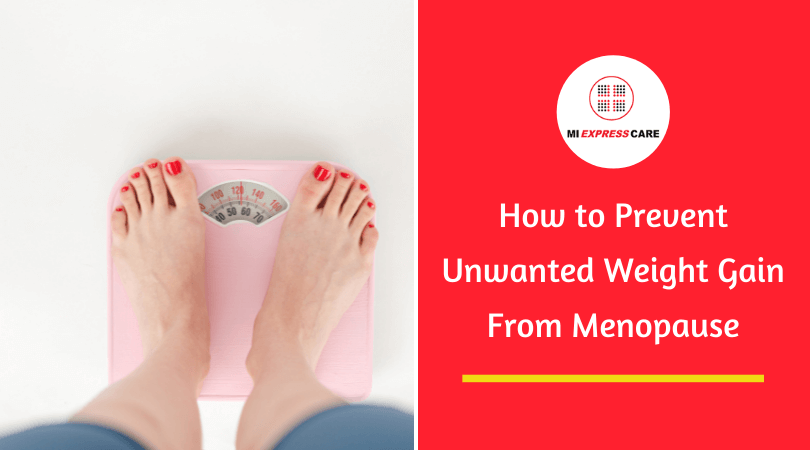Weight gain due to or during menopause is common, and according to studies,
women in their 50s and 60s gain roughly 1.5 pounds per year. This article discusses how menopause and weight gain are linked and how to prevent and shed this excessive weight.
Causes of menopause weight gain
Aging: People of all genders gain weight as they get older due to a natural decrease of lean muscle mass (called sarcopenia). After the age of 30, people lose 3% to 8% of their muscular mass per decade, with lean muscle loss occurring significantly after 60.
Hormones: Hormones, specifically low estrogen levels, greatly affect weight gain in women. According to a study, women who are about to start or are going through menopause had
significantly higher total fat mass, truncal fat, and visceral fat.
Sedentary Lifestyle: If you aren’t active, muscle mass decreases, and your metabolism rate slows down because it takes more energy to maintain muscle than fat. Weight gain occurs when calories are not burned.
Sleep Problems: Hot flashes, night sweats, and heightened anxiety are some symptoms that result in
sleep deprivation, which has been linked to weight gain in certain studies.
Risks of excessive menopause weight gain
Women who gain a significant amount of weight after menopause are susceptible to the following conditions:Diabetes: One study found that postmenopausal women who were "metabolically unhealthy overweight/obese" had a
400% higher chance of getting diabetes than postmenopausal women who were "metabolically healthy normal weight."
Heart Disease: After menopause,
women's susceptibility to heart disease increases. This is mostly due to a lack of estrogen, which has heart-protective properties.
High Blood Pressure: Menopause can be difficult for women who are likely to have high blood pressure. Since your body no longer has the protective effects of estrogen, your blood vessels are at risk of narrowing, making it harder for your blood to circulate.
How long does menopause weight gain last?
Menopause symptoms, including weight gain, can last from two to eight years, with a four-year average. However, weight gain during menopause is often preventable.
What are the best methods to avoid weight gain after menopause?
If you’re wondering how to lose weight during or after menopause, here are some practical ideas.
Physical Activity: Aerobic exercise and strength training can help
weight loss and maintenance. Brisk walking/jogging for 150 minutes per week is recommended for healthy adults.
Maintain a Calorie Deficit: You may require around 200 fewer calories per day in your 50s than you needed in your 30s and 40s to maintain your current weight.
Your diet should contain:
- Fruits and vegetables
- Whole grains
- Less processed food
- Fish
- Low-fat dairy products
- Plant-based diet
- Olive/vegetable oil for cooking purposes
- Fiber
- Legumes
- Nuts
- Soy
Foods that should be avoided/eaten in limited quantities:
- Meat (red meat)
- Butter/cheese
- Sugar-sweetened beverages (cold drinks, juices, coffee, etc.)
- Foods with excess dietary sugar (Cakes, cookies, doughnuts, etc.)
- Alcoholic beverages
When to see a doctor
Some women still struggle with their weight after menopause, even after making considerable lifestyle adjustments. If you're still gaining weight despite limiting calories and exercising consistently, consult your doctor because it could be an indication of a more serious health problem.Request an appointment at
MI Express Primary Care today if you are looking for menopausal weight gain treatment. We can create a customized
weight loss plan based on your medical condition and goals.


